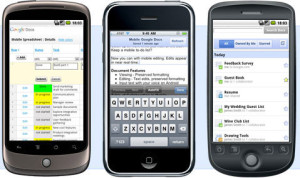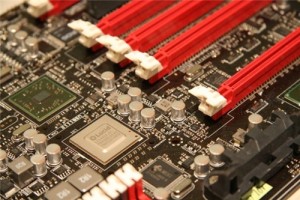Today, cars can have as many as 70 electronic control units, or ECUs, based on microcontrollers (sometimes generically referred to as microprocessors). ECUs manage engines, doors, transmissions, seats, and entertainment, and climate systems.
Electronic throttle systems use an array of sensors, microcontrollers, and electric motors to control how the car is accelerated. Gone are the old steel cables to connect the driver’s foot to the engine.
A software problem arise in Toyota 2010 models.
The company changed braking system software in January as part of what it called “constant quality improvements,” but did not say what it would do about vehicles manufactured before then.
Toyota (TM) officials described the problem as a “disconnect” in the vehicle’s complex anti-lock brake system (ABS) that causes less than a one-second lag. At 60 mph, though, a vehicle will have traveled nearly another 90 feet before the brakes begin to take hold.
Brakes in hybrids such as the Prius operate differently from brakes in most cars. In addition to standard brakes, which use friction from pads pressed against drums or rotors, the electric motors in hybrids help slow them. The process also generates electricity to recharge the batteries.
The Japanese government has warned Toyota to take seriously mounting complaints with the Prius. Toyota Vice President Shinichi Sasaki met with Japan’s transport minister Wednesday.
In Japan, 14 complaints about brakes in the Prius have been lodged since July. Japan’s Ministry of Land, Infrastructure, Transport and Tourism has asked Toyota to investigate, according to the Japan Automobile Dealers Association.
“The complaints received via our dealers center around when drivers are on a bumpy road or frozen surface,” said Paul Nolasco, a Toyota Motor Corp. spokesman in Japan. “The driver steps on the brake and they do not get as full of a braking feel as expected.”
All of this comes as political problems continued to pile up for the company. The U.S. Department of Transportation upped the pressure on Toyota when the agency’s head, Secretary of Transportation Ray LaHood, told owners of recalled vehicles to stop driving them during remarks he made Wednesday before a House appropriations hearing. However, he later backed away from this statement and said he meant only that Toyota owners who are worried about their cars should take them to dealerships.
“NHTSA has received a number of complaints about a potential defect affecting the brake system in Toyota’s Prius hybrid and is conducting field work to examine the issue,” the agency said Wednesday.
A search of NHTSA’s complaint database turned up many similar-sounding complaints in the United States.
“I have been driving my 2010 Prius for 6 months and have experienced the following nearly 10 times,” one owner wrote. “When braking, if a pothole or bump in the road is hit, the car seemingly jerks forward/accelerates for a split second.”
The Prius is Toyota’s third best-selling model in the United States, ranking behind the Camry mid-size sedan and the Corolla compact car.
Toyota’s public image, and its sales, have been hit by recent recalls involving unintended acceleration.
The automaker recalled 2.3 million vehicles on Jan. 21 because of problems with sticking gas pedals and later halted the sale of the eight models involved in the recall.
Toyota’s U.S. sales plunged 16% in January as a result, even as the sales of other automakers rose.
Toyota announced third-quarter results Thursday, posting an operating profit of $2.1 billion. The quarter ended Dec. 31, three weeks before Toyota stopped selling the recalled models.
In a separate recall, about 4.2 million vehicles were called back in November because their gas pedals might get stuck in some floor mats. The last-generation version of the Prius was included in that recall, which was expanded to include an additional 1.1 million cars last week.
Source:cnn.com



![Read more about the article Digg founder Kevin Rose Will No More Stay[Confirmed]](https://thetechjournal.com/wp-content/uploads/2011/03/digg-logo.jpg)